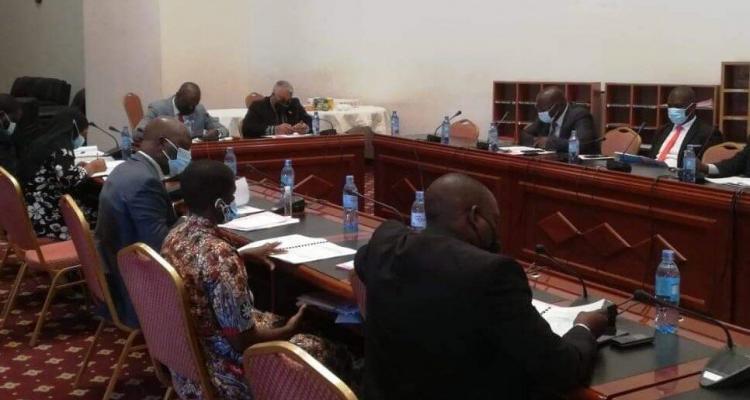
Agricultural Development and Marketing Corporation (Admarc) General Manager Rhino Chiphiko says there is a cartel involving officials from various ministries and banks as well as some individuals that benefits when Admarc borrows money from local banks.
He was speaking in Lilongwe today when he appeared before the Parliamentary committee on agriculture.
According to Chiphiko, the individuals involved earn commissions when Admarc get expensive loans from local banks hence they have been trying to force Admarc to borrow.
“Some individuals are doing this to cripple Admarc so that if Admarc has no maize they should offer government the maize at a very expensive price,” said Chiphiko.
He added that the 92,000 metric tons of maize which Admarc currently has belongs to banks through collateral arrangements.
“Admarc is working for the Banks,” said Chiphiko.
Chairperson of the Parliamentary Committee on Agriculture Sameer Suleman said his committee will bring down the cartel and reveal names of the people involved.
He added that the committee will meet President Lazarus Chakwera over the revelations.
“We are ready to face any consequences in this fight, even if it means losing our lives. We must bring down these cartels,” said Suleman.
In the 2021-22 budget, ADMARC was allocated K95 billion for purchase of maize but Admarc was expected to borrow K40 billion of the money from local banks with Government guaranteeing the loans.
So far, according to Chiphiko, Admarc has managed to borrow K25 billion from NBS Bank and K5 billion from MyBucks Corporation.
A request to borrow K10 billion from National Bank was rejected by the bank and Admarc has since approached ECO Bank for a K16.2 billion loan and FDH Bank for a K10 billion loan.
The company will still need K30 billion for maize purchase.
Admarc in July this year received K12 billion from Government and the company has since purchased about 26,727 of maize valued at about K4 billion.















Knowing about the disease is half cured. Do the right thing for the sake of Malawians at large not individuals.